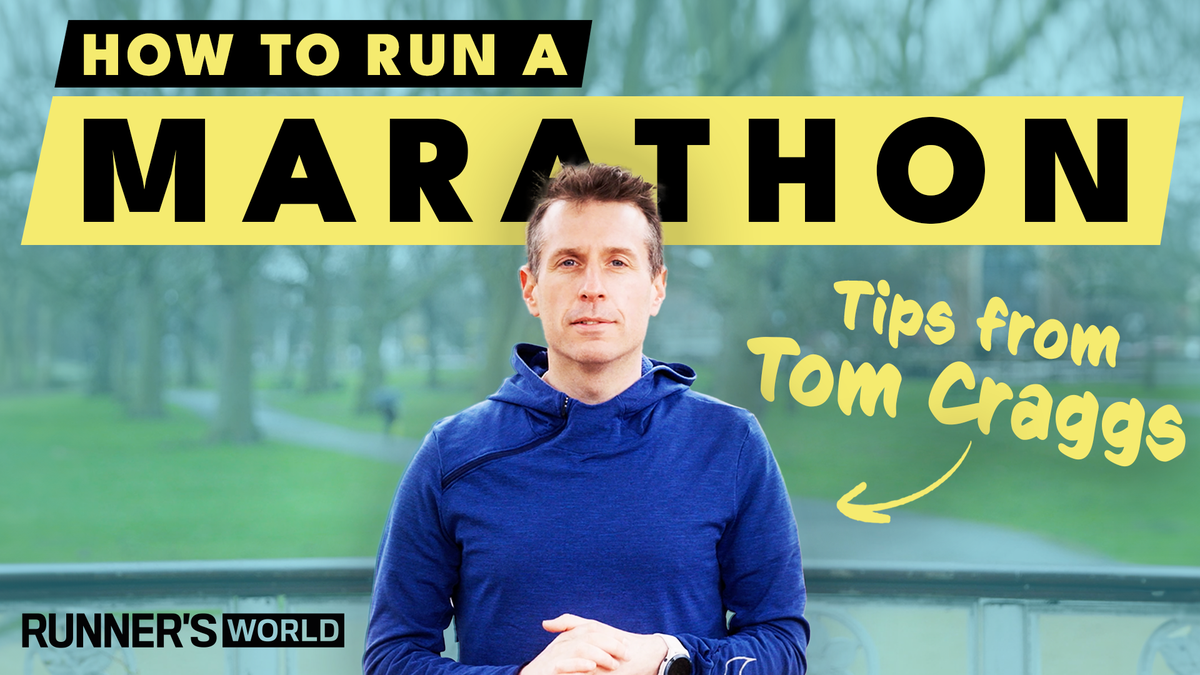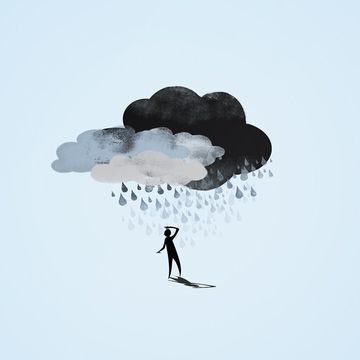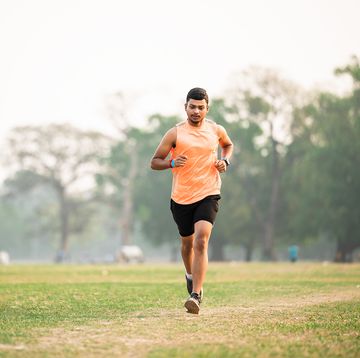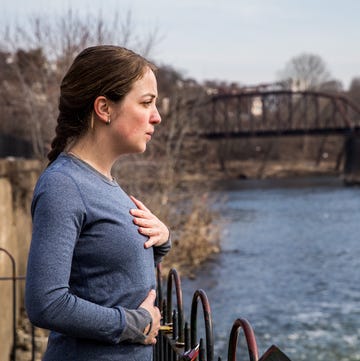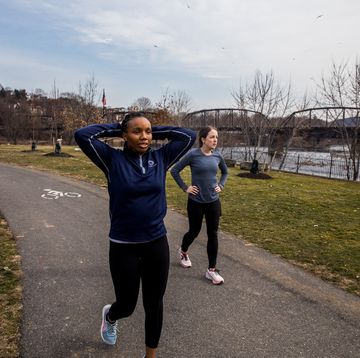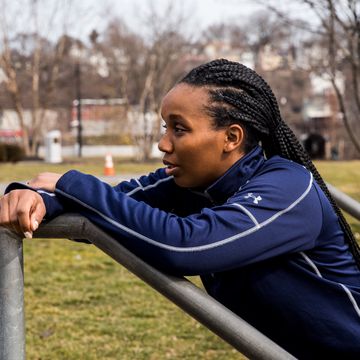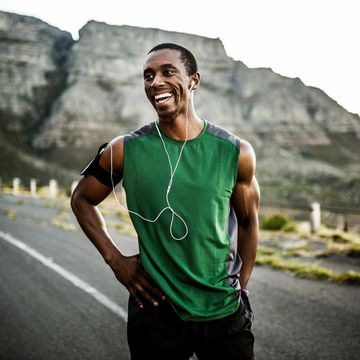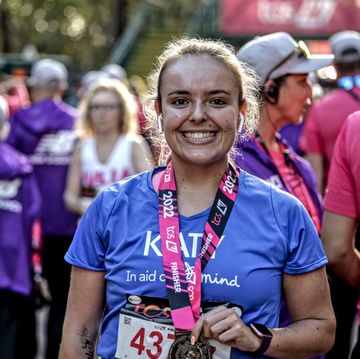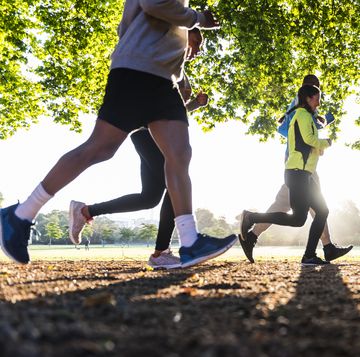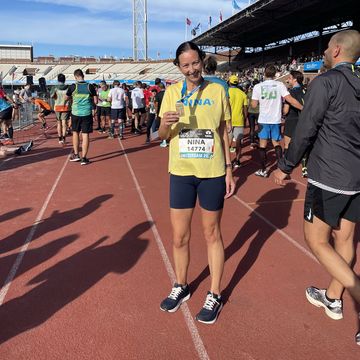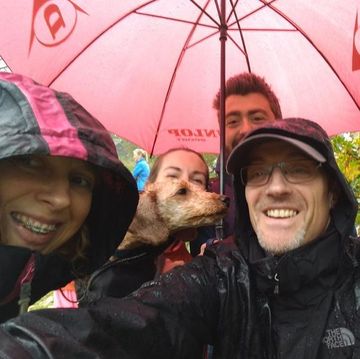It's not that unusual for people to try ultrarunning these days. What’s definitely strange, however, is someone attempting an ultra as their first race of any kind.
‘I hate marathons,’ says Benjamin Davies. ‘They’re a distance where you have to push yourself; you have a pace in mind and you’ll be disappointed if you fall short of that. But give me a 50-miler or a 100-miler and I know that the goal is just getting to the end.’
Davies, from Stourbridge in the West Midlands, is a newcomer to running altogether, but he wasted no time in getting straight to the big challenges. He began pounding the pavement in March 2019, just to keep his wife company, who was doing a charity race for a children’s hospital. Within a year, he had struggled through a 40-mile ultra and entered the ballot for the Grand Union CanalRace, a 145-mile slog from the centre of Birmingham to Little Venice in London. That year’s race didn’t happen due to Covid, which he’s actually thankful for in hindsight. ‘I think it would’ve killed me,’ he says.
But by May 2021, he was on that start line and competing up to the93-mile mark, where he could go no further. ‘I was just completely obliterated,’ he says. ‘My legs, my ankles, my tendons were just shot.’The following year, he finally made it, finishing in 21st place with a time of 37:29:00. It’s been a steep learning curve that has left him certain that ultrarunning has changed his life overwhelmingly for the better. He’s an inspirational evangelist for the sport on social media, where he’ll share wise life advice alongside pictures of him and his mates all beardy, exhausted and smiling after epic weekend training runs.
‘You try telling people how good you can feel after running 90-odd miles and they think you’re making it up. Even to myself sometimes, it’s incomprehensible. I’d hate to drive to London, never mind run it. But in that race, after 140 miles, I honestly felt like if the finish line had been 200 miles, I could probably have pushed to that distance,’ he says.
That superpowered feeling has been hard earned. Davies grew up with a father who could be great fun but was also physically abusive to him, his mother and his brother. One day,he had to be collected early from school after being sick in the toilets due to concussion. He was bullied because of his weight. More recently, his niece, who had suffered from health complications since birth, died at just 18 months old. These experiences left him extremely fragile mentally.
What were his coping mechanisms prior to discovering running? ‘Drink,’ he says bluntly. He’s been sober since autumn 2021. He also found brief comfort through overspending, becoming fixated on something that needed money throwing at it. At one point, he bought a couple of Funko Pop! figurines because he liked the Star Wars ones. Within a year, he owned more than 500. ‘I would track down a rare one, get a little endorphin rush, it would be put on a shelf and I’d go back to feeling rubbish again.’
When his niece’s death left him in a particularly bad place, a friend gave him the book Can’t Hurt Me by David Goggins, a former US Navy Seal who has completed numerous endurance challenges. ‘It gave me a kick up the backside, which really helped,’ he says. ‘That’s when I started searching for ultramarathons online. My whole life, I’d thought a marathon was the longest distance you could do.’ These races are famous for being even more of a trial for the mind than the body. If someone is already mentally delicate, why wouldn’t it break them? ‘I used to be a very, very emotional runner,’ he admits. ‘I couldn’t go on a long run without there being tears at some point. But it always manifested itself with a positive twist. I would think about the spark that my niece left in everyone who knew her.’
He’s found that running a long way with friends enables them all to support each other. He loves the African proverb: ‘If you want to go fast, go alone; if you want to go far, go together.’ He likes the idea of fellow runners helping each other rather than competing. ‘It’s like therapy, when you’re running along, not looking straight at each other. It’s easier to talk. And everyone’s hurting the same, so you can unpackage that together.’
For the past two years, he and his friends have organised a ‘24-hour parkrun’ at their local course, Cannock Chase. Rather than being a competition, it was simply ano pportunity for people to turn up at any time, run or walk as far as they wanted and have someone to talk to along the way. ‘No distance, no pace, but if you need to come and talk, there are a few of us there to listen.’
Next, he fancies trying to set a fastest known time for the length of the River Severn, about 220 miles. But in the end, mind-boggling distances or not, this isn’t really about the miles. He’s found a way to live, and it works.


